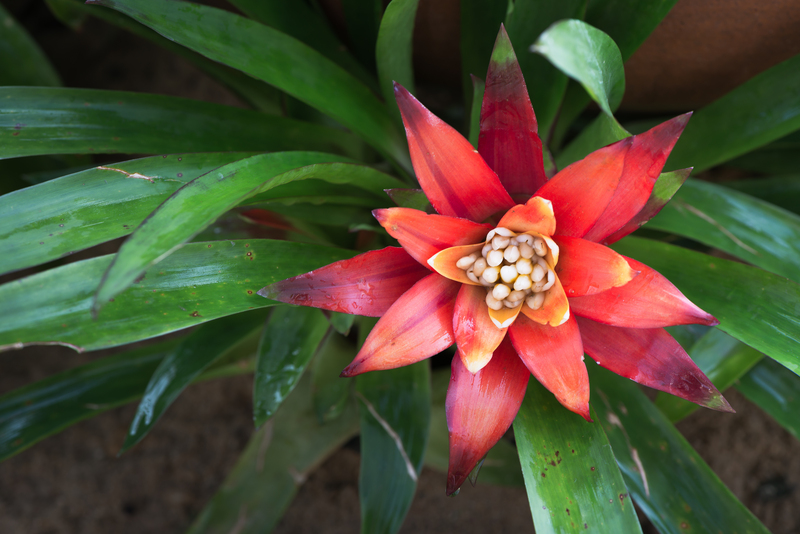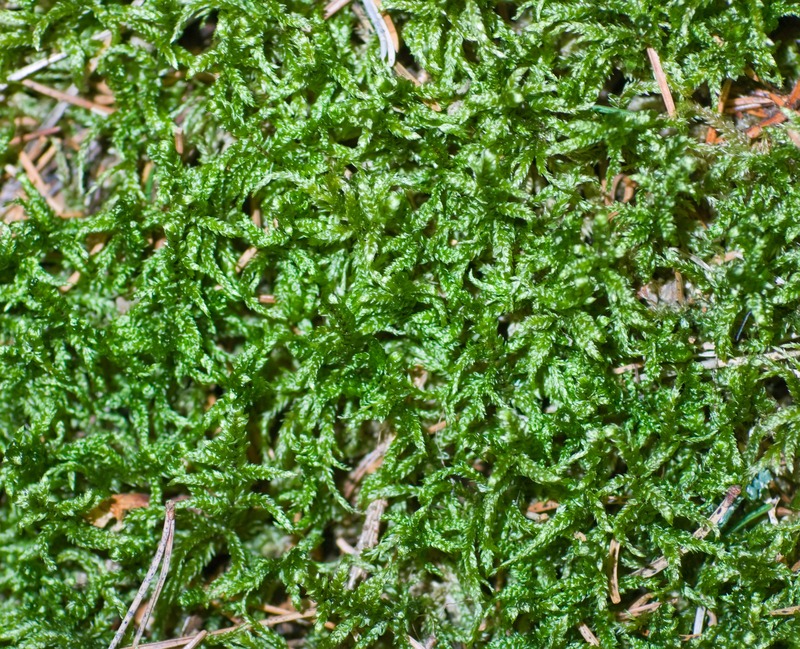Laying the Groundwork: 9 Foundational Tips for Beginner Gardeners
Posted on 30/08/2025
Laying the Groundwork: 9 Foundational Tips for Beginner Gardeners
Starting your own garden can be one of the most rewarding hobbies, offering both physical and mental health benefits while bringing splashes of color and texture to your outdoor space. Whether you're nurturing an edible vegetable patch or a lush flower bed, getting started can feel overwhelming. But with the right guidance, beginner gardeners can cultivate a thriving landscape without getting lost in the weeds!

Why Laying the Right Foundation Matters
A successful garden begins long before you plant your first seed or seedling. Thoughtful planning and careful groundwork lay the path to a healthier, more productive plot. Ignoring the basics often leads to poor plant health, wasted time, and discouragement--especially for those new to gardening. Fortunately, mastering some core gardening tips for beginners lights the way to abundant blooms and bountiful harvests for years to come.
9 Essential Tips for Beginner Gardeners
1. Start Small and Expand Gradually
- Resist the urge to transform your entire yard in one season. Small, manageable gardens allow you to learn valuable lessons without getting overwhelmed.
- Choose one sunny spot and create a garden bed or use a few containers.
- As your confidence and experience grow, you can gradually expand your gardening ventures!
2. Understand Your Local Growing Conditions
- Every region has unique growing conditions. Get to know your USDA Plant Hardiness Zone or your local equivalent and understand your average frost dates.
- These factors will dictate what types of plants thrive in your area and the length of your growing season.
- Visit local nurseries and gardening clubs, or check cooperative extension services for regional advice.
3. Test and Prepare Your Soil
- Soil is the lifeblood of any garden. Before planting, carry out a simple soil test (home kits are widely available) to determine the pH and nutrient content.
- Well-balanced, nutrient-rich soil promotes stronger growth and reduces disease risk.
- Improve soil structure, drainage, and fertility by digging in organic matter like compost, well-rotted manure, or leaf mold.
- In heavier clay soils, add coarse sand or gypsum. For sandy soils, organic matter will help retain moisture.
4. Choose the Right Plants
- As a beginner, success is more likely if you choose plants suited to your climate and soil--and are fairly undemanding!
- Look for low-maintenance, hardy species like marigolds, zinnias, sunflowers (for flowers), or lettuce, radishes, herbs (for vegetables).
- Pay attention to plant tags and descriptions; ensure you're matching the plant's light requirements and mature size to your garden's conditions.
- Mix a variety of annuals and perennials for continual blooms or harvests throughout the season.
5. Plan and Design with Care
- Sketch a simple map of your garden bed. Arrange the tallest plants at the back (or center, if round), gradually decreasing to the shortest at the edge.
- Leave enough space between plants to account for their mature size--crowding invites diseases and hinders growth.
- Consider color palettes, blooming periods, and textures for visual appeal and long-lasting interest.
- Rotate vegetables each year to maintain soil health and reduce pest buildup.
6. Master Watering Techniques
- Overwatering and underwatering are common beginner mistakes. Most plants prefer deep, infrequent watering to shallow daily sprinkles.
- Check the top inch of soil before watering; if it feels dry, it's time to irrigate.
- Water early in the morning to minimize evaporation and reduce disease risk.
- Consider installing soaker hoses or drip irrigation to deliver moisture directly to the roots.
7. Mulch for Moisture and Weed Control
- Apply a 2-3 inch layer of organic mulch--such as shredded bark, leaf mold, or straw--around your plants.
- Mulching helps retain soil moisture, smothers weeds, and slowly enriches the soil as it breaks down.
- Keep mulch a few inches away from plant stems to prevent rot.
8. Become a Pest and Disease Detective
- Gardens can attract a range of pests and diseases, but early intervention saves most plants.
- Inspect your plants regularly for holes, discoloration, wilting, or sticky residue.
- Encourage beneficial insects like ladybugs and lacewings, which naturally control pests.
- Use physical barriers--such as row covers or copper tape--or natural remedies (like neem oil) when necessary and always follow label instructions.
9. Invest in Basic Gardening Tools
- You don't need every gadget on the market, but a few key tools will make your work much easier.
- Start with a sturdy trowel, hand fork, pruners, watering can, and gloves.
- Clean your tools after each use and store them in a dry place to extend their lifespan.
Bonus Beginner Gardener Tips for Long-term Success
- Keep a gardening journal. Note planting dates, varieties, successes, and lessons learned.
- Be patient--gardening is a journey, not a race! Plants need time to establish and thrive.
- Join local gardening groups or online forums for ongoing advice and inspiration.
- Don't be afraid to make mistakes: every setback is an opportunity to learn!

Frequently Asked Questions: Laying the Groundwork for New Gardeners
What's the easiest way for a beginner gardener to start?
Use containers or raised beds: these are easier to manage and tend, and you can control the soil quality. Start with a few easy-care plants, such as herbs or salad greens, and gradually add complexity.
How often should I water my new garden?
Most new gardens require deep watering two to three times per week, depending on weather and soil. Sandy soils dry out faster; clay retains water for longer. Don't water on a fixed schedule--monitor soil moisture levels and observe your plants' needs.
What are some good beginner-friendly plants?
- Flowers: Marigolds, zinnias, cosmos, nasturtiums
- Vegetables: Lettuce, radishes, spinach, bush beans
- Herbs: Basil, parsley, mint, chives
These varieties are resilient, fast-growing, and generally require minimal intervention.
Why is soil testing important for beginner gardeners?
Soil tests provide insight into the levels of key nutrients and soil pH. This information lets you amend your soil--and choose your plants--so you don't waste time and effort on crops that will struggle or fail to thrive.
Conclusion: Building Your Successful Garden from the Ground Up
By following these nine foundational gardening tips for beginners, you'll be well on your way toward cultivating a vibrant and productive plot. Remember, every great gardener started as a beginner--willing to dig in, get their hands dirty, and learn from both triumphs and setbacks.
Invest time in preparing your garden's foundation, and you'll enjoy lush growth, fragrant blooms, and fresh harvests for seasons to come. Happy gardening!
Latest Posts
Shade-Tolerant Evergreen Climbers: A Solution for Dark Spaces
Ensuring Longevity in Your Orchids
Discover the Best Techniques for Shaping Impressive Hedges

